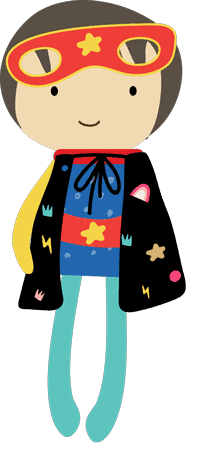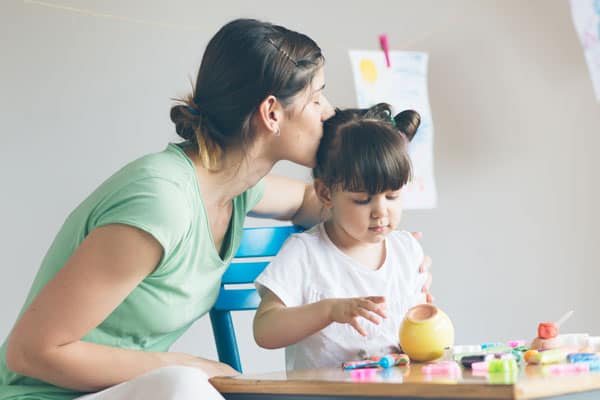Our Services

Child Centred Play Therapy (CCPT)
Play Therapy is an amazing child-lead, evidence-based modality for children (aged 2-12), that focuses on the child, their relationships and their experiences, drawing on interpersonal neurobiology and understanding of child development.

Family Play Therapy (Interplay - attachment based)
This play-based approach to family therapeutic support is grounded in CCPT, although is centred around the child caregiver relationship (attachment), where we work with the child and caregiver together in the playroom.

Parent Education & Support
We offer this accepting space for you to feel supported and guided around how to understand and support your child’s needs and development, in a way that is authentic to you and your child.

Perinatal Mental Health Support
Personalized perinatal mental health support is to provide mothers and their partners with encouraging, compassionate, and recovery-focused help. This support seeks to alleviate feelings of isolation and loneliness by fostering connections and encouraging conversations with others, paving the way for a healthier and more stable future.
Child Centred Play Therapy (CCPT)
Play Therapy is an amazing child-lead, evidence-based modality for children (aged 2-12), that focuses on the child, their relationships and their experiences, drawing on interpersonal neurobiology and understanding of child development. Play Therapy may allow your child to experience and process their feelings and needs at their own pace, using play as their most natural form of language, and toys as their words.
(Landreth, G, 2012)

Play Therapy is a specialised approach that is effective in meaningfully addressing a wide range of childhood emotional, behavioural, developmental, and social presentations and concerns. It can provide a healthy way for your child to sort through and process their feelings in the playroom, be free to transform past experiences, and make sense of new ones.
Through reexperiencing and testing their world in the playroom, children are given the opportunity to form new neural connections (brain superhighways) within their little brains, increasing their sense of empowerment, emotional regulation, insight, and self-belief (Play Therapy Australia).
Research has found Play Therapy to be an effective therapeutic approach for a variety of children’s difficulties, including:
Difficulties adjusting to family changes and other adjustment issues.
Sleeping issues or eating difficulties.
Children with a diagnosis of Autism – where CCPT takes a holistic approach to therapy, and can support and enhance the child’s emotional capacity, communication, and empowerment in their world, as well as promote a feeling of genuine acceptance.
Chronic illness or experiences of hospitalisation or surgery, including premature or traumatic birth.
Bonding and attachment issues with caregiver/s or other significant persons.
Children who may have experienced Foster Care, Adoption or Out of Home Care.
How can Child Centred Play Therapy help my child?
Children can often find it difficult to find words and reason to express their feelings, particularly when they are feeling scared, worried, or sad, and therefore seek different outlets such as play and behaviour to explore and share with us what is going on for them. We see the child’s behaviour as being a symptom of something deeper, and through the therapeutic process, children are fostered to achieve their potential for inner growth and healing to gain more of a sense of balance and control in their lives. Play Therapy can be an amazing modality for children as it can support children of all ages to tap into their inner resources, and release, express and process their big feelings, in a way that works best for them.
Part of our role is to provide gentle emotional scaffolding, where your child is free to go where they need to, safely and securely. We work as emotional co-regulators in the playroom, which refers to the way we’re able to feel and sense your child’s internal state during the play session.
During our sessions, the playroom and play experience can offer a safe, predictable, and empowering space for your child. They will be supported to:
- Work on developing their emotional resilience and capacity.
- Form a greater sense of self-confidence and self-respect for themselves and others.
- Form the confidence to re-enact, recreate and play out some of their inner experiences in the playroom, creating new and positive brain neural pathways and connections.
- Help them form healthier ways to communicate and cope in the real world.
- Learn new social skills and relational skills with family.
- Develop new and creative solutions to problems.
(Association for Play Therapy A4PT).
perinatal perPerinatal Mental Health Support
Through this process, parents and carers can be supported through humanistic practice and care.
This service can assist parents and carers in developing and enhancing parenting confidence, through providing support and confidence in the following areas:
- Understanding Baby’s first relationship.
- Strengthening your bond during your transition to parenthood (third trimester of pregnancy, early perinatal period and beyond!!
- Infant and toddler feeding.
- Sleep and settling under 5 years.
- Learning about ages and stages of development, and ways to promote healthy development.
- Challenging toddler behaviour
- Looking after you!
How can Perinatal Mental Health intervention, support me and my child?
COMING SOON…
FAMILY PLAY THERAPY
(INTERPLAY)
This play-based approach to family therapeutic support is grounded in CCPT, is attachment focused, and is centred around the child caregiver relationship, where we work with the child and caregiver together in the playroom. This can be a beautiful approach, that focuses on the child within their family system, to support optimal growth and healing. We provide an emotional scaffold in which to do this.
During these sessions, through use of verbal reflections, we focus on the “Interplay” between the child and caregiver, attuning and responding to the shared interactions and responses in the playroom. By doing this, they can form some insight in those moments of genuine interaction. This can support those in the playroom to feel a sense of connection and safety inside and outside their sessions, as they form more awareness around what each other needs. As a result, families may then be able to commence the healing process, feel validated and understood and learn more about what may be causing the underlying challenges in the relationship.
How can Family Play Therapy support me and my child?
The benefit of Family Play Therapy for families, is that it supports therapeutic work within the relationship itself. Dyadic play-based support aims to connect families in the playroom, though their shared experiences and challenges. The premise behind this intervention, is that it focuses on the natural and real interplay between a child and their caregiver, in an environment that is authentic and safe. This approach can be effective in any situation where family members are experiencing interpersonal struggles or difficulties in their relationships, early in life attachment or trauma and so many other areas of need.
Parent Education and Support

We offer this accepting space for you to feel supported and guided around how to understand and support your child’s needs and development, in a way that is authentic to you and your child.
We will work with you collaboratively, working on attunement and connection between you and your child in those moments where things might be more challenging and guide you through the reasons why these may be occurring. This enables a discussion around strategies that may help you respond and connect to your children empathically when they may be feeling anxious or worried, needing a sense of control, or feeling overwhelmed.


